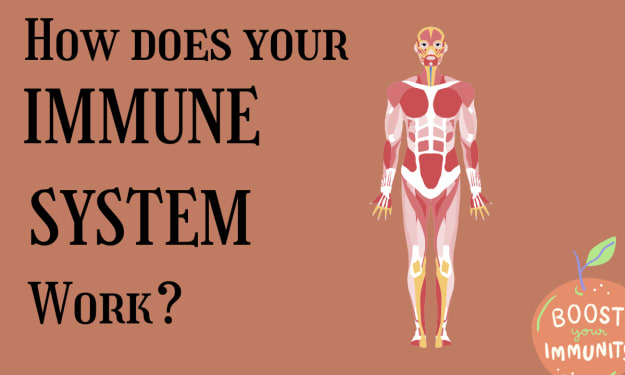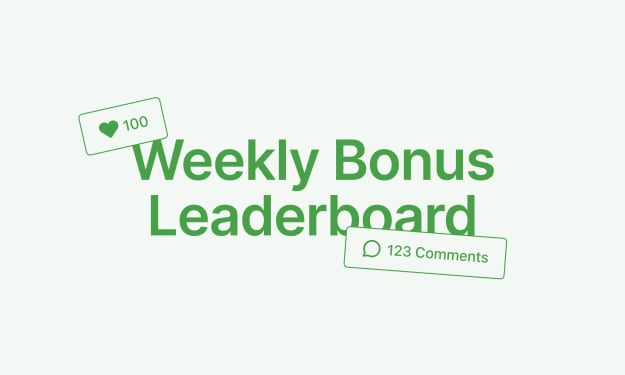The Reality Of Invisible Disabilities
The Unspoken Truths
I have been disabled for most of my life and I didn't even know it. At the very beginning of 2023 is when I learned what it was called and ever since then, it has been a rough journey of navigating it and figuring out what my life will look like going forward. In hindsight, a label for my disability shouldn't necessarily be the biggest bombshell that makes me question my entire life, but with everything I have experienced the past couple months, it has.
It's unfortunate that before receiving my "title" for a disability I hadn't really heard of no one really treated me differently. I check off other boxes that would, unfortunately, be subjected to discrimination, like my religious/spiritual beliefs and my sexuality. At that time, I wasn't facing any issues with people having it out for me. It was maybe a month or so later after my diagnosis that I realized how differently a name to a thing I have can change everyone's perceptions.
I initially was fairly open about my disability and what it kind of entailed. I mainly told the closest people to me first and they were all so kind and so understanding. They were great. It was the task of telling the other people that became so daunting because they all questioned the validity of my disability, as they did not hear about it either.
Mistake #1 - assuming people would go out of their way in wanting to be educated in things they do not know.
In the work I do, I am heavily expected to complete tasks in collaboration with other people that are supposed to be supportive and understanding to the fact that I am disabled. Instead, the accommodations I received to help me in performing my daily tasks for my job, were seen as "favoritism" by my co-workers. A person in a wheelchair needs access to a ramp because they cannot walk up the stairs. It's not favoritism to allow them to have access to that ramp. The fact that this is even a conversation is wild.
My previous supervisor often spent time with me to 1 - comfort me with all of the mess that was going on at the job, and 2 - to remind me that I am human and how I was being treated was 100% wrong. They seemed to be, and still are, the only person on my side and believes me. But to everyone, it was perceived as them having favoritism towards me and decided that I should be hated more for the "privileges" that I was receiving.
Mistake #2 - believing people have critical thinking skills in understanding that kindness does not equal favoritism.
I have been living with the unfortunate reality of having a disability in a workspace that does not value me in the slightest. I stopped talking about my disability altogether because of it. In fact, I was told to quit multiple times from multiple people to "avoid the trouble" or "avoid the stress". Because avoiding things would solve the problem. No. I am an example of one person with an invisible disability. There will be someone after me at some point and they will have to go through the same pain and that's not okay.
Did I quit? No. I have been trying to find my way out of my situation through various means, but it has been a very long process. I have made it very clear to almost everyone involved that I have been miserable and exhausted. I have made multiple reports of discrimination, to which none have resulted in the termination of those who discriminated against me.
Mistake #3 - assumed employers would want to do their job and protect employees from mistreatment and discrimination.
Instead, I have gotten in trouble for complaining too much, for causing "drama", and being the sole reason for there being a rift within the staff. All because I don't stand for the treatment. I have been gaslighted into thinking that I am crazy for reporting any of the things that have happened.
My experience is just one of the various accounts of mistreatment for those with invisible disabilities. More advocates are needed. More education and research is needed. People need to understand that at the end of the day, we are still human. Our abilities are different, but that doesn't make us any less important or valued. I hope to be able to continue advocating for both myself and others going forward. The mistreatment and discrimination will not continue.
About the Creator
Angel Adagio
Thank you for taking the time to read some of my work. Your support is much appreciated. It may not be perfect, but it's real. I hope you'll stay a while.







Comments (2)
Keep advocating, raising awareness, and pushing for a workplace culture that respects and supports individuals with disabilities. Your efforts will undoubtedly make a difference and pave the way for a more inclusive and equitable future.
I was actually in the hospital with my disability, with doctors in my room, when my employer called me, accused me of faking it, and told me to get to work. I thought my doctor was going to blow. I just calmly told him that I couldn't the doctor wouldn't discharge me, and hung up. I didn't stay there too much longer.